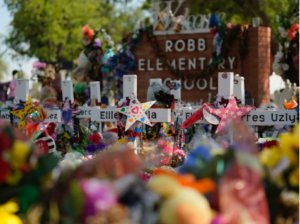
DOJ Report Finds Law Enforcement Greatly Failed in Uvalde School Shooting Response
By Tommy J Burns|2024-05-24T14:43:42+00:00April 4, 2024|Policing Expertise, Security Consulting, Security Expertise|Comments Off on DOJ Report Finds Law Enforcement Greatly Failed in Uvalde School Shooting Response
About the Author: Tommy J Burns
Tommy Burns, a retired police chief, is a Security & Police Consultant, practicing in Forensic Consulting and expert witness testimony. He was previously a contractor consultant to the Southern Nevada Counter Terrorism Center (SNCTC) as the Privacy Officer. He was a faculty instructor in Criminal Justice and Security for the University of Phoenix. Mr. Burns previously served as security director for several Hotel-Casino properties in the Las Vegas Valley.
